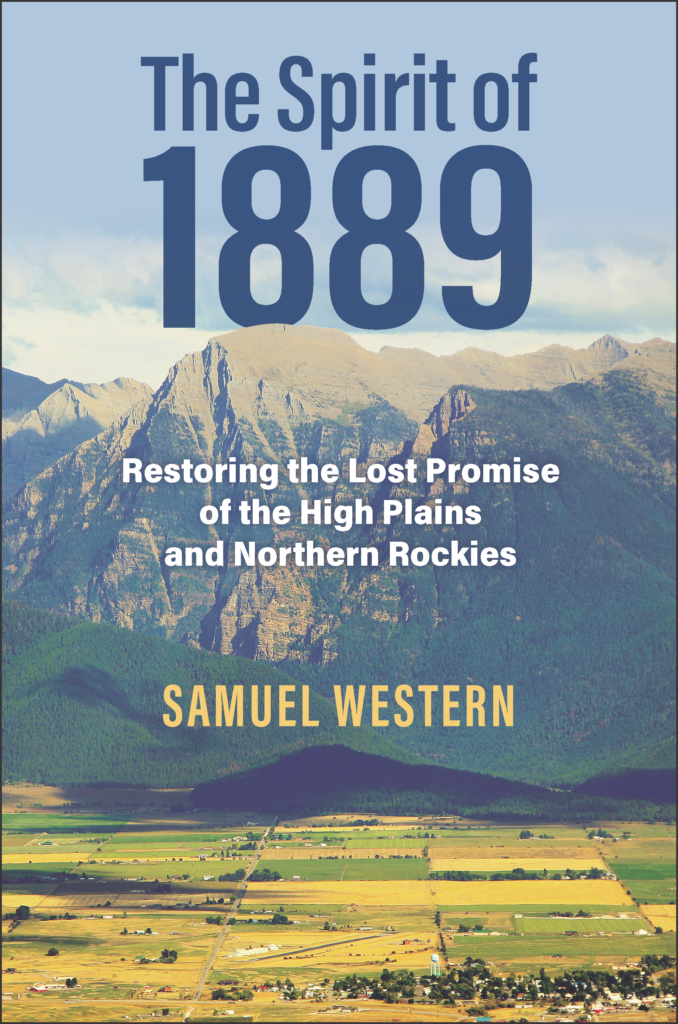“Sam not only tips over sacred cows, he butchers them for food.”
– Rod Miller, Cowboy State Daily
The Spirit of 1889
Restoring the Lost Promise of the High Plains and Northern Rockies
Release Date: July 31, 2024
In August 1889, the five states that were once part of the Dakota 1861 Territory—North Dakota, South Dakota, Wyoming, Montana, and Idaho—drafted their state constitutions in preparation for inclusion in the United States. These constitutions were models of progressive and pragmatic values for their time. Wyoming, for instance, was the first state to grant women’s suffrage. In addition to suffrage, delegates from these states banned child labor, curbed the power of railroads and grain monopolies, mandated state ownership of running water, opened voting eligibility, and created state-owned banks. These states, the “89ers,” as Samuel Western calls them, exhibited a spirit of commonweal inclusivity that set them apart.
Much has changed since—and not for the better. Today, legislators in these five states have spurned these inclusive values. Instead, they promote the narrative of exclusion and lean toward authoritarianism. Legislators restrict voting, disenfranchise Native Americans, limit protests, squash public education, and discourage immigration initiatives, such as sanctuary cities. In their current condition, these states are in direct contradiction of the pragmatically inclusive and progressive values of their 1889 constitutions. The 89ers today are driven by ideological objections to political autonomy (stripping power from cities), fueling partisanship, and a rigid commitment to traditional commodity-based industries. Western sees hope for the future, but only if these states replace their fidelity to a particular idea of rural America with a more pragmatic openness to diversity and change—which will paradoxically bring them closer to the original spirit of their constitutions.
Western calls for a radical rethinking of what rural America is and could be. As a long-time resident in Wyoming, he speaks not from the outside but as someone who personally cares about this region and its future prosperity. The Spirit of 1889 aims to shed light on how these states have drifted so far from where they began and what might be done to reclaim those original values.
Read the Review by Rod Miller in Cowboy State Daily
Find a book signing near you!
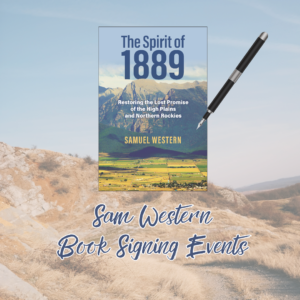
Saturday, September 28, 10am-Noon
Wind City Books
Casper, WY
The Spirity of 1889 is available for online purchase
Please support your local bookstores if you prefer to buy in-person.
Stay tuned for The Spirit of 1889 regional book-signing schedule.
Non-Fiction books, articles & essays
Samuel Western writes about big-picture economic and demographic trends, the “deeper, slower movement,” as Arnold Toynbee would say. Samuel is also interested in the idea of community and economic history, particularly in the northern Rocky Mountains.
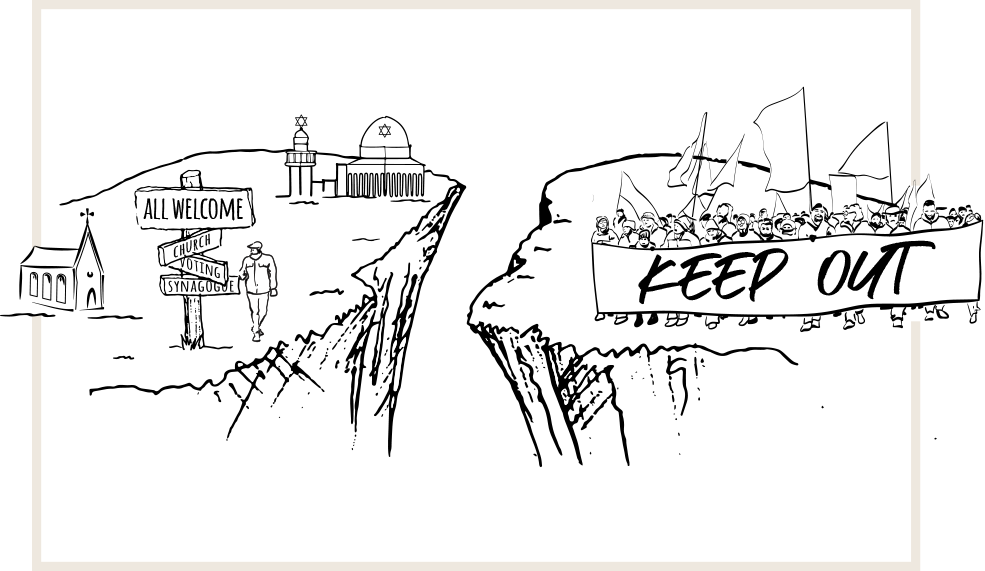
North Dakota, South Dakota, Montana, Wyoming, and Idaho wrote, or rewrote, their state constitutions in August 1889.
WrittenThese documents were remarkably inclusive and progressive: state ownership of water, suffrage from women, curbing the power of the railroads, and eight-hour day for workers.
Over the years, these states welcomed the odd duck and unconventional: Hutterites, Mormons, Mennonites, syncretic New Age communes, doomsday cults, Jewish colonies, and militias. These people did not drift into plains and mountains by accident. They came because of the region’s live-and-let-live attitude.
Now, these states are among the most exclusive states in the union. Theircurrent politcal narrative doesn’t match those envisioned by their founders. It doesn’t promote the values of independence, individualism, or liberty found in these collective constitutions.
How did this happen?
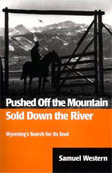
PUSHED OFF THE MOUNTAIN SOLD DOWN THE RIVER
Written on a four-month deadline (lots of 12 hours days involved), Pushed Off the Mountain, Sold Down the River, is one of the best-selling books in Wyoming literary history. Now in its eighth printing, the book documents Wyoming unique and sometimes fabricated history. Along with TA Larson’s History of Wyoming, Pushed Off the Mountain is considered cornerstone work in understanding how and why Wyoming works like it does.
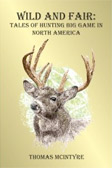
WILD & FAIR
“Thomas McIntyre has brought together some of the finest outdoor writers to create this anthology of hunting big game in North America. These original stories cover all North American big-game-from moose and bear in Alaska to sheep and mule deer in the Lower 48; it even contains a hunt for muskox. The writers include Stephen Bodio, author of Eagle Dreams; David Petzal of Field & Stream; Craig Boddington, one of the most famous outdoor writers today; Philip Caputo of the Chicago Tribune (1973 Pulitzer Prize winner) and many more.This book will give you a profound sense of why hunting is such an integral part of the American landscape. It is a grand collection of well-crafted stories on North America’s most sought-after big-game species.”
-Good Reads
ARTICLES & ESSAYS
ARTICLES
- Wyoming Evolving Tourism
- A New Green Revolution
- Rural Education 2.0
- We’re in This Together
- A Divine Business
- Born caged: A new “wild’ West
- The Rural West’s Pragmatic Booster
- Ethanol takes off in the West
- Travesty on the Wind River Reservation
- A Country for Kinda Old Men
- Secrets of the walnut trade
- Wary in Wyoming
- The Wyoming paradox
- Not here, surely?
- First come, first served
- Buying a gulp of the Colorado
- Wyoming’s AML revenue stream slowing to a trickle
- Wyoming’s Permanent Mineral Trust Fund can’t entirely protect the budget from volatile commodity prices
- A demographer predicts big changes for the West’s housing landscape
- December 26, 2005
- Rural Education 2.0
- Leasing federal minerals in Wyoming and the West
- The Wyoming Cattle Boom, 1868-1886
- The Wyoming Sheep Business
- Samuel Western’s keynote address to the Wyoming Outdoor Council

